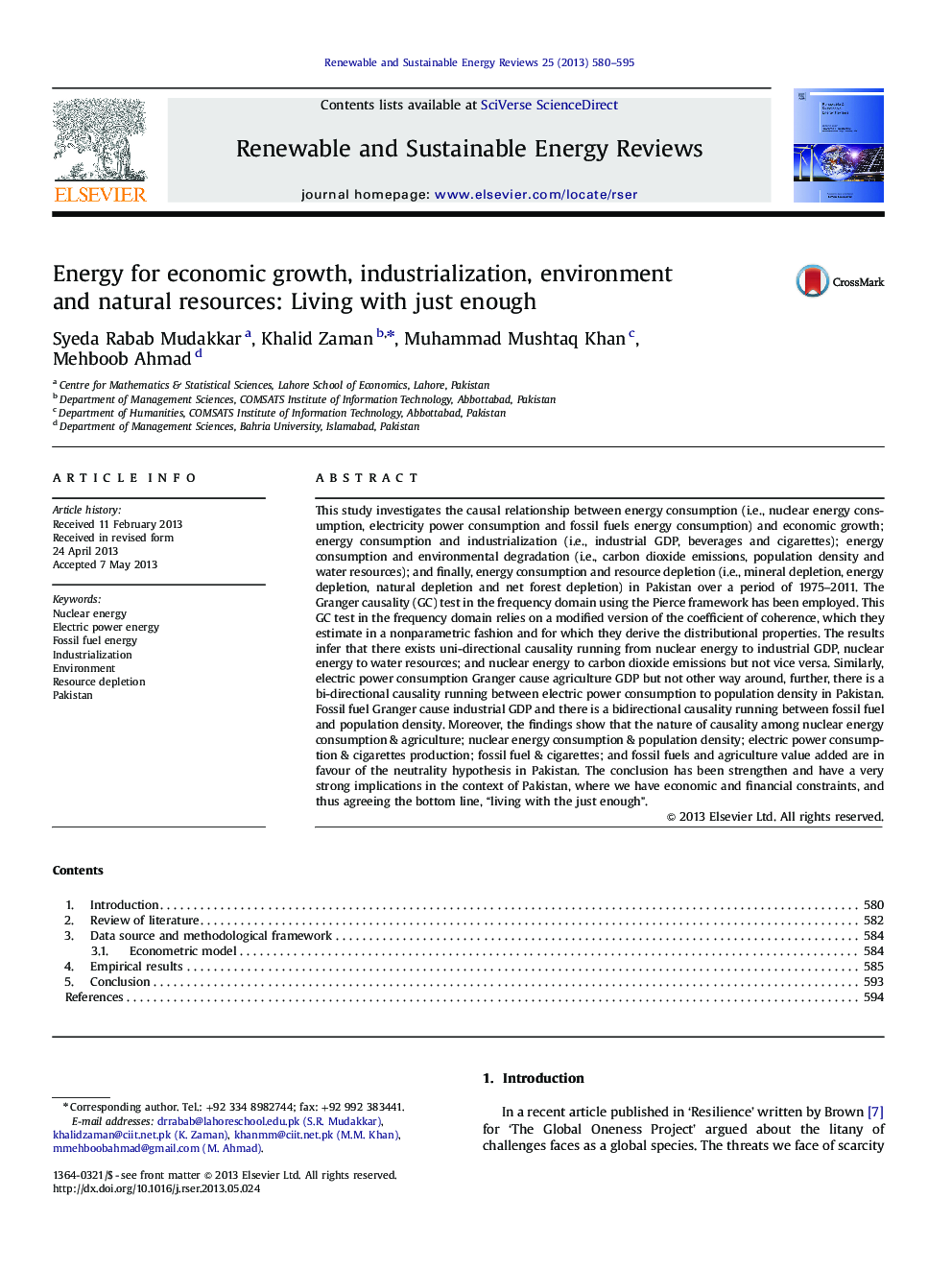| Article ID | Journal | Published Year | Pages | File Type |
|---|---|---|---|---|
| 8121779 | Renewable and Sustainable Energy Reviews | 2013 | 16 Pages |
Abstract
This study investigates the causal relationship between energy consumption (i.e., nuclear energy consumption, electricity power consumption and fossil fuels energy consumption) and economic growth; energy consumption and industrialization (i.e., industrial GDP, beverages and cigarettes); energy consumption and environmental degradation (i.e., carbon dioxide emissions, population density and water resources); and finally, energy consumption and resource depletion (i.e., mineral depletion, energy depletion, natural depletion and net forest depletion) in Pakistan over a period of 1975-2011. The Granger causality (GC) test in the frequency domain using the Pierce framework has been employed. This GC test in the frequency domain relies on a modified version of the coefficient of coherence, which they estimate in a nonparametric fashion and for which they derive the distributional properties. The results infer that there exists uni-directional causality running from nuclear energy to industrial GDP, nuclear energy to water resources; and nuclear energy to carbon dioxide emissions but not vice versa. Similarly, electric power consumption Granger cause agriculture GDP but not other way around, further, there is a bi-directional causality running between electric power consumption to population density in Pakistan. Fossil fuel Granger cause industrial GDP and there is a bidirectional causality running between fossil fuel and population density. Moreover, the findings show that the nature of causality among nuclear energy consumption & agriculture; nuclear energy consumption & population density; electric power consumption & cigarettes production; fossil fuel & cigarettes; and fossil fuels and agriculture value added are in favour of the neutrality hypothesis in Pakistan. The conclusion has been strengthen and have a very strong implications in the context of Pakistan, where we have economic and financial constraints, and thus agreeing the bottom line, “living with the just enough”.
Related Topics
Physical Sciences and Engineering
Energy
Renewable Energy, Sustainability and the Environment
Authors
Syeda Rabab Mudakkar, Khalid Zaman, Muhammad Mushtaq Khan, Mehboob Ahmad,
